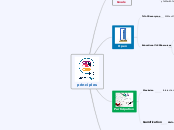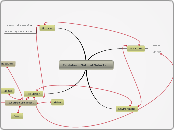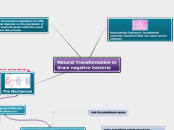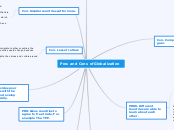b1 ch6 narrative
E. Ethical concerns
Gene therapy leading to death
Creating embrios for treating a sick brother
Testing embrios for genetical disposotion
D. Environment influence on Genes
Temperament creates environment
Gentotgype/ Phenotype interaction (PKU)
Envrionment (i.e. Peers) more important for individual differndes
C. Genes influence on developement
Polygenic
Williams Sydrome
But: Karmilloff-Smitt
complex and progressive
specific defects: can come from subtle genetic influences
hearing problem because of a gene coding for fibre rigidity.
early defects: less specific outcomes
developmental plasiticty
Genes contribute to the likelyness of a certain developmental path
Take other developmental route
different cognitive processing is used to arrive at similar outcome
i.e. face processing module
psychological features
cognitive impairment
weak semantics
distinct facial features
Single Gene
But: Env: Diet can prevent this
amnio acid can not be metabolized and lead to cogntive impairment
Rat studies
Cooper
Maze dull raised in rich environment performed as well as maze bright
Tyron: Maze Dull / maze bright studie
F. Evolutionary Psychology
critique overestimation of envriornment / underestimation of culture
Pinker
Evolution brought about abilities for cultural transmission (i.e. learingn and teaching)
example
how genetic prefs for baby featurs drive evolution of teddybears
Function of Modules
social interaction
Expetation: Mechanisms to engage in and learn social interaction
Berndt+Ladd
Close friends are more similar
symmetire
reciprocity
TOM
Built in 4 stages
... leading to TOM
not: shared attention ...
Eyemovement detector
humand as intentional
Function of Extended Childhood?
indirect
Greary + Bjorklund
Als
Speeding up development can result in impairment
cog and soci. traits lead to survival at all stages of developement
Preparation of adutlhood
promotes social skills
Increased agressiveness in males
protect family
doll play
prep for motherhood
Immaturity beneficial to development itself
Bandura: Overestimation
leads to trying out more and perseverance
Memory dev.
Ratner: Egocentrical behviour
Leads to better event memory
Short WM
Better langauage learning in short chunks
Immediate effects
(beneficial to survival of child )
Play
but serves the process of development itself
muscle dev. to get to the next stage
sucking relex
survival of baby
Some of the functions are hard to assotiate with adult survival
unclear why humand need longer development (not prepared for immediate survival after birth)
What is evolution
EEA
But:
Recognizes environment as important
but goals and individual cog. processes
Cannot be tested
Evolutionary dev. psychology
What is the function of aspects of behav.
Bowlby
Attachment: to bond with carer for protection and learning
Evolved Modules (psychological processes)
facec recogn
language
that brought advantages
We are adapted to Hunter Gatherer Enviromnemt
Variation
Selection
Heredity
B. Behvioural Genetics
Adoption studies
What can be attributed to similar environment
sim with natural
sim with adopt
Twin Studies
concordance between MZ vs. DZ
DZ
50%
MZ
But: also treated the same
75% heritabilty for overactiviy and Attention problems
Schitzophrenia
4x higher
But: Twins also treated the same
100%
Family Studies
Varying Gentetic similarity
Mother vs. Uncle
Similar Environmments
A. Introduction
Heritabilty (statistics)
changes accross lifespan
increase: likely becaue of selectiviy of environment
intelligence for white middle class more attriubtable to genetic differnces (similar environment)
only for groups
The proportaion of phenotypical variation that can be attributed to genetic influences
Functions of Genes
Traits
many are polygenic
Schitzo
influenced by single genes
PKU
Regulation of function
hormones
neurotransmitters
buiding blocks
producing protetins
Interaction
Phenotype is the effect of environment on the genotype
Epigenessis
environmental factors influence which genes are switched on
Individual variation
Environment
Differneces
Genes
similarities
differnt levels of explanation
often are complementary
Gentical
Behaviour Genetics
How do genes contribute to behaviour
Psychological
Evolutionary Psychologists
What is the fuction of a behavour









